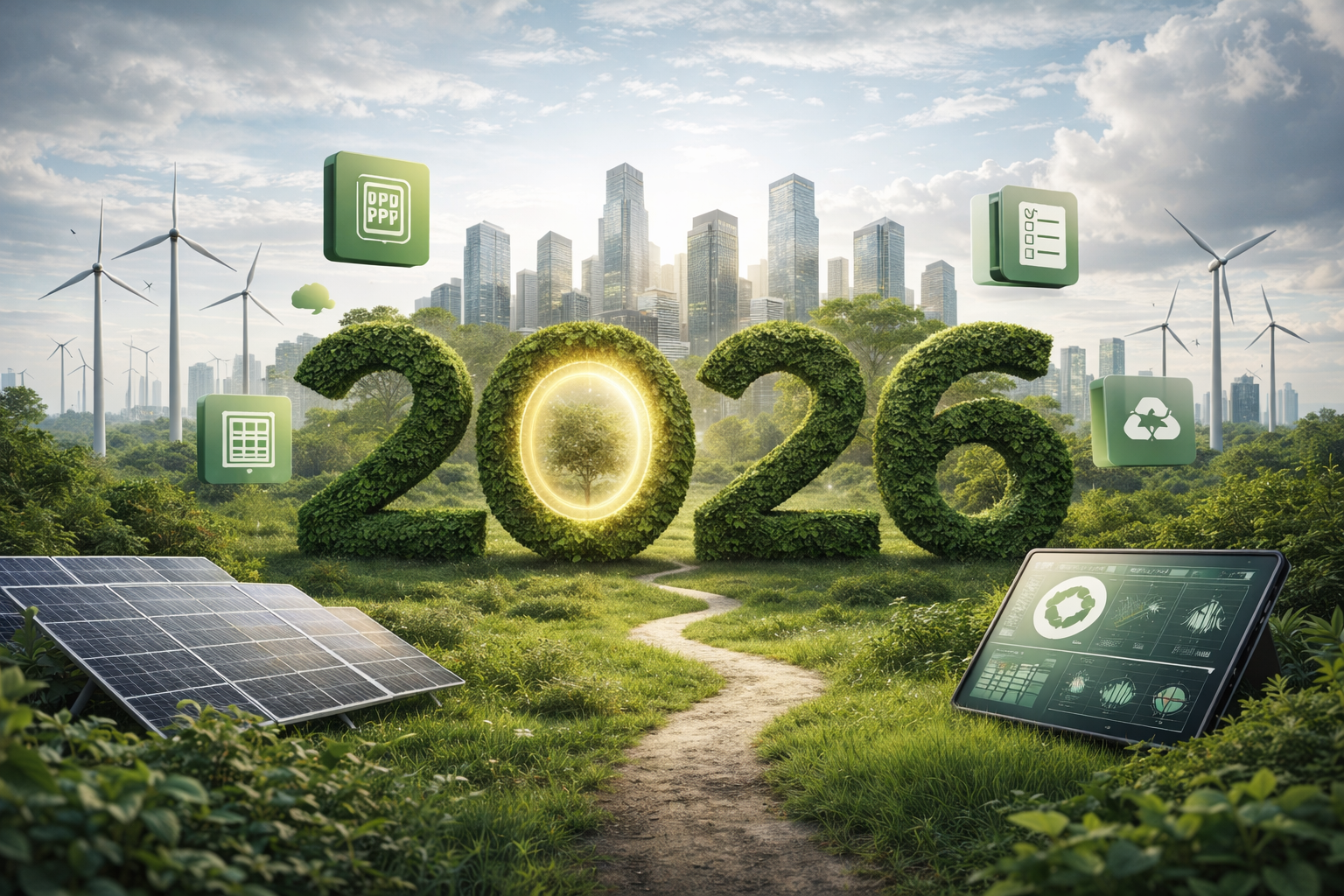Navigating Sustainability in 2025: 5 Mission-Critical Priorities

Developing and implementing effective carbon transition strategies continues to be a complex challenge for sustainability leaders - yet it has never been more critical.
As regulatory expectations rise and stakeholder demands become more complex, organisations must develop practical, action-oriented plans. These plans need to go beyond ensuring compliance and transparency - they must also align with climate objectives and deliver lasting business value.
What are the top five sustainable priorities in 2025?
Previous years have focused on ‘greening’ energy supplies, reducing energy consumption, and minimising emissions, but the road to impact in 2025 looks markedly different from years past.
In this article, we explore the top five things influencing corporate sustainability to help your organisation navigate today’s evolving landscape and build a sustainability strategy fit for the future.
ESG and Sustainability as Strategic Anchors in Uncertain Times
Amid growing political debate and calls for regulatory rollbacks, ESG and sustainability have come under pressure. However, this should not be mistaken as a cue for companies to pull back. Rather, it signals a critical moment to recalibrate strategies and reinforce long-term commitments.
Regulatory frameworks across the EU, UK, and US are evolving - not being dismantled. Businesses should prepare for shifts in policy and disclosure expectations, not an absence of oversight. In this environment, clarity, credibility, and consistency in climate action are more important than ever.
Stakeholders, from investors to clients and supply chain partners, continue to expect meaningful progress to future proof business operations. As some organisations pause or adjust course, those that remain focused and forward-looking will be best positioned to lead, differentiate, and create lasting value.
Reducing Carbon Impact Through Supplier Collaboration
For sustainability leaders, developing accurate and actionable emissions reduction plans is impossible without a comprehensive understanding of the company’s supply chain carbon footprint.
In fact, a significant portion of emissions often lies outside direct operations - specifically within Scope 3, where supply chain emissions dominate. This makes proactive engagement with key suppliers and partners essential to designing effective and achievable decarbonisation strategies.
One particular example comes from Microsoft, whereby they are encouraging their suppliers to enhance their sustainability efforts. According to Sustainability Magazine, Scope 3 emissions, which include those produced by suppliers, partners, and the use of Microsoft’s products, account for over 97% of the company’s total carbon footprint
Responsibility flows both ways. While companies increasingly evaluate the carbon impact of their suppliers, they are also held accountable by clients and partners for their own environmental performance. Whether measuring emissions or meeting evolving expectations, close collaboration across the entire supply chain ecosystem is critical to success.
Scope 3 is Moving into Focus and Businesses Must Be Ready
Historically, sustainability regulations have centred on Scope 1 and Scope 2 emissions - those within a company’s direct control. But that’s changing. Scope 3 emissions are increasingly under regulatory scrutiny, and their inclusion in mandatory disclosure requirements is on the horizon.
Given their indirect nature, Scope 3 emissions are the most complex to measure, manage, and report. In response, many organisations are adopting a materiality-led approach - focusing first on the categories within Scope 3 that carry the greatest operational and reputational risk.
As regulatory frameworks evolve to include Scope 3, companies that have already invested in data quality, supplier engagement, and robust emissions tracking will be significantly better positioned to comply - and to lead.
Accelerate Decarbonisation Through the Voluntary Carbon Market
Reducing carbon emissions is fundamental to the climate transition. While many companies are working to make their operations and supply chains more sustainable, some emissions are unavoidable.
To address residual emissions, companies across sectors should establish a clear strategy for engaging with the Voluntary Carbon Market (VCM). As the market evolves - with improved standards, transparency, and verification frameworks - businesses can offset unavoidable emissions more confidently, using high-integrity credits that support credible climate action.
However, the quality and price of these credits can vary significantly. Carbon removal credits are especially sought after and tend to be more expensive. Large organisations often secure these credits through long-term contracts, which can make them difficult to obtain in the Over-the-Counter (OTC) market.
As the VCM evolves, standards improve, and prices rise, companies will need a clear credit procurement strategy to secure high-quality credits for their unabated emissions at a fair price.
AI Might Be the Most Complex Sustainability Challenge Yet
In a recent blog article, we highlighted AI’s growing appetite for energy - a trend that has significant implications for corporate sustainability. As AI becomes increasingly embedded in day-to-day business operations, it introduces new complexities for emissions tracking and reporting.
Carbon accounting is already a challenging task for sustainability teams. The rise of AI may soon make it even more difficult. To maintain transparency and accuracy in emissions disclosures, companies will need to start identifying, tracking, and reporting the carbon footprint associated with their AI usage.
While methodologies for calculating AI-related emissions are still emerging, it's a topic that could soon be part of regulatory requirements or supply chain expectations. Sustainability leaders should stay informed and begin experimenting with new tools now to prepare for these future changes.
Final Thoughts
While ESG initiatives may be facing some near-term political and market headwinds, their fundamental drivers remain stronger than ever. The landscape is being shaped by evolving regulatory obligations, undiminished stakeholder expectations, and the rapid emergence of new disclosure requirements. It is apparent that effective leadership in this space requires a dual focus on adaptability and long-term planning.
Companies that succeed will be those that actively engage their entire value chain, anticipate emerging challenges like Scope 3 emissions and the carbon footprint of AI, and prioritise high-integrity decarbonisation. This approach is the key to building resilience, guaranteeing compliance, and creating enduring value, irrespective of short-term market noise.
Contact us for no-obligation advice on how you can use renewable power, biofuels and carbon offsets as part of your decarbonisation strategy.
About Big Energy Group
Big Energy Group is a privately held, British-owned energy brokerage with an established track record of helping clients successfully navigate the energy market. The company has offices in Harrogate and the Tees Valley and serves more than 500 businesses across the UK. For more information, please visit bigenergygroup.co.uk.



.jpg)